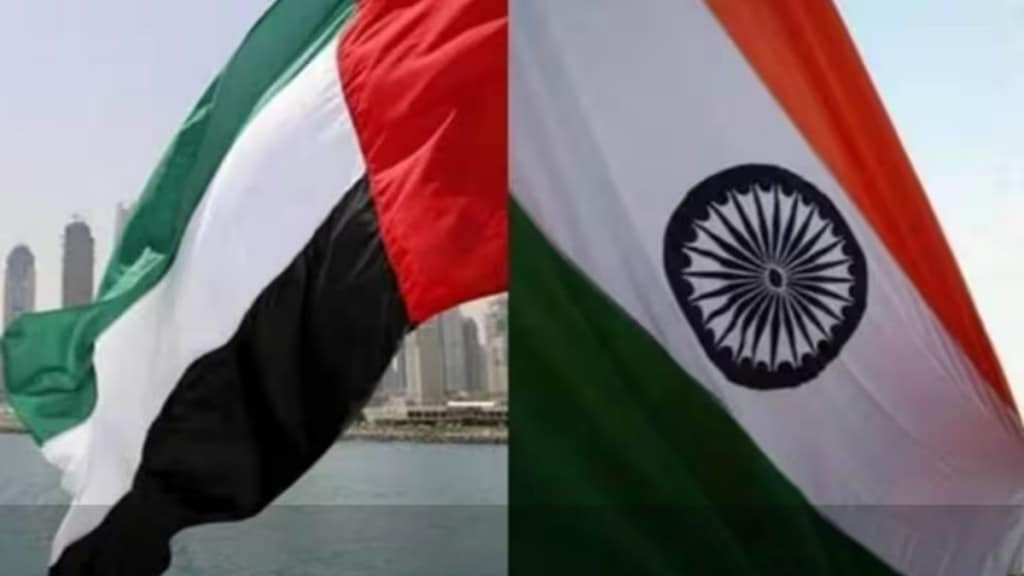The collaboration between India and the UAE in the logistics sector received a significant boost with the implementation of the Comprehensive Economic Partnership Agreement (CEPA) on May 1, 2022. This landmark agreement, which eliminates or reduces tariffs on various goods, has unleashed a multitude of trade opportunities, laying the groundwork for bilateral trade to potentially soar to US$ 100 billion within the next five years.
Following Prime Minister Narendra Modi’s visit to the UAE, the UAE-India Business Council (UIBC), Jones Lang LaSalle (JLL), and Invest India joined forces to release an extensive report on ‘India-UAE collaboration in the logistics sector’. This comprehensive report delves into critical aspects such as the UAE-India CEPA Agreement, India-Middle East-Europe Economic Corridor (IMEC), India-Middle East Food Corridor, India-UAE Logistics Prospects, among others, providing an in-depth analysis of the synergies, opportunities, and prospects arising from the strategic partnerships between India and the UAE.
The anticipated surge in trade volume is poised to drive significant growth in India’s logistics sector. The escalating demand for transportation and warehousing services will fuel industry expansion, fostering an environment ripe for innovation and entrepreneurial ventures.
The IMEC, an ambitious 7,200-km-long multi-modal corridor, envisions a seamless linkage between India and Europe via the Arabian Peninsula. This monumental infrastructure project is poised to revolutionize trade and logistics in India, promising reduced transit times and transportation costs. Furthermore, the transformative impact of the IMEC extends beyond mere cost efficiencies; it is anticipated to enhance trade facilitation, deepen economic integration, and fortify the resilience of regional supply chains.
Similarly, the India-Middle East Food Corridor underscores the paramount importance of food security. By leveraging innovative logistics solutions such as cold chain management and real-time monitoring, stakeholders can significantly contribute to enhancing the efficiency of the supply chain.
The convergence of CEPA and IMEC presents an unprecedented opportunity for India’s logistics industry to redefine its role in shaping the future of trade. By embracing technological advancements, optimizing supply chains, and prioritizing sustainability, logistics companies in India can play a pivotal role in driving economic growth, fostering regional integration, and transforming the logistics landscape in the country.
Moreover, the recent emphasis on promoting renewable energy in the logistics sector, as evidenced by initiatives such as the G20 New Delhi Summit and COP28 in Dubai, underscores the recognition by India and the UAE of the need to develop an efficient and integrated logistics network to capitalize on their respective strengths. As the global landscape continues to evolve, the strategic alignment between India and the UAE in logistics emerges as a model for harnessing the full potential of bilateral relationships.
“The Government of India has implemented innovative policies to revolutionize logistics services within the country. The National Logistics Policy aims to improve logistics hubs and aims to reduce the cost of logistics operations in the country to be comparable to global benchmarks by 2030. The policy aims to achieve this by encouraging the use of digital technologies to improve the visibility, traceability, and transparency of goods in transportation, resulting in shorter transit times and lower costs,” states Invest India.
India is UAE’s second-largest trading partner, accounting for 9 percent of the total trade. Similarly, the UAE is India’s third-largest trading partner after the USA and China. The signing of CEPA in 2022 has led to an increase in bilateral trade from US$ 72.9 billion (April 2021- March 2022) to US$ 84.5 billion (April 2022- March 2023), registering a year-on-year increase of 16 percent. The expansion in trade underscores the urgent need for advanced logistics solutions. For instance, the remarkable 17 percent growth in exports of plain gold jewellery in the fiscal year 2022-23 is a testament to the burgeoning market rapport between India and the UAE. However, the high cost of logistics, dominated by a few key players, poses a challenge. This scenario sets the stage for tech-driven logistics firms to enter the fray, offering disruptive, cost-effective solutions for moving precious goods. The introduction of advanced tracking, automation, and data analytics can revolutionize the logistics landscape, ensuring the secure, efficient movement of goods while reducing costs and fostering greater economic integration under the CEPA framework.

